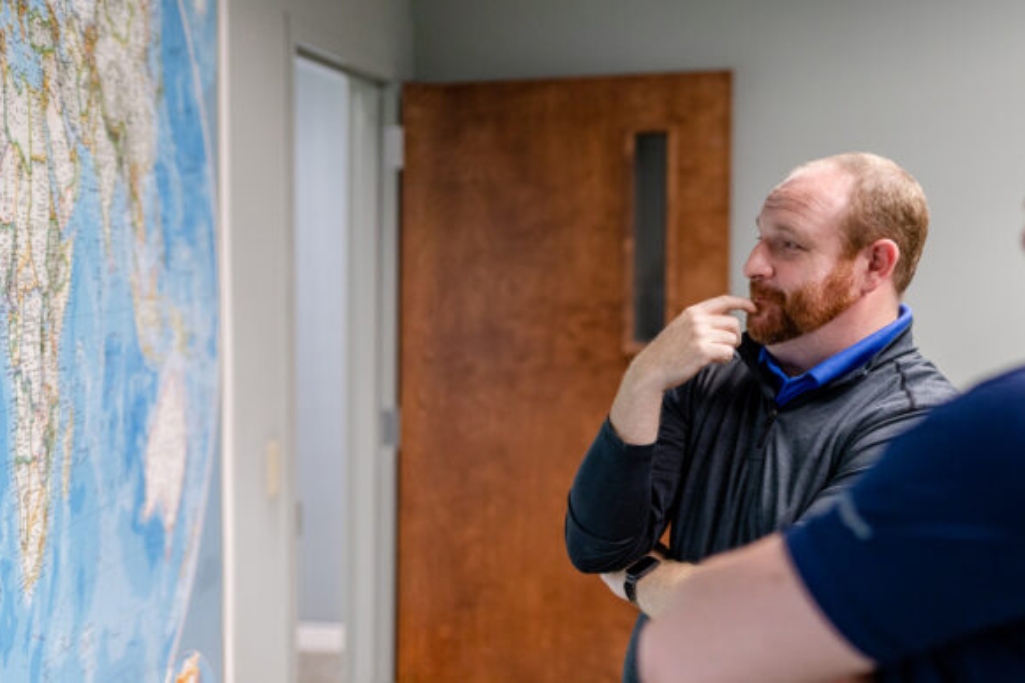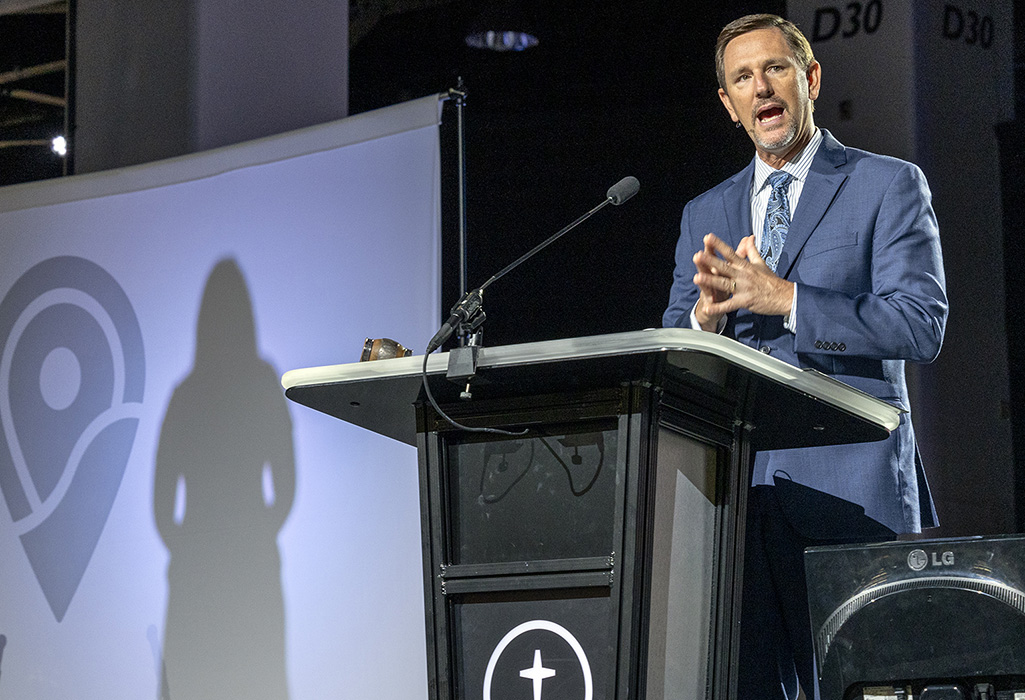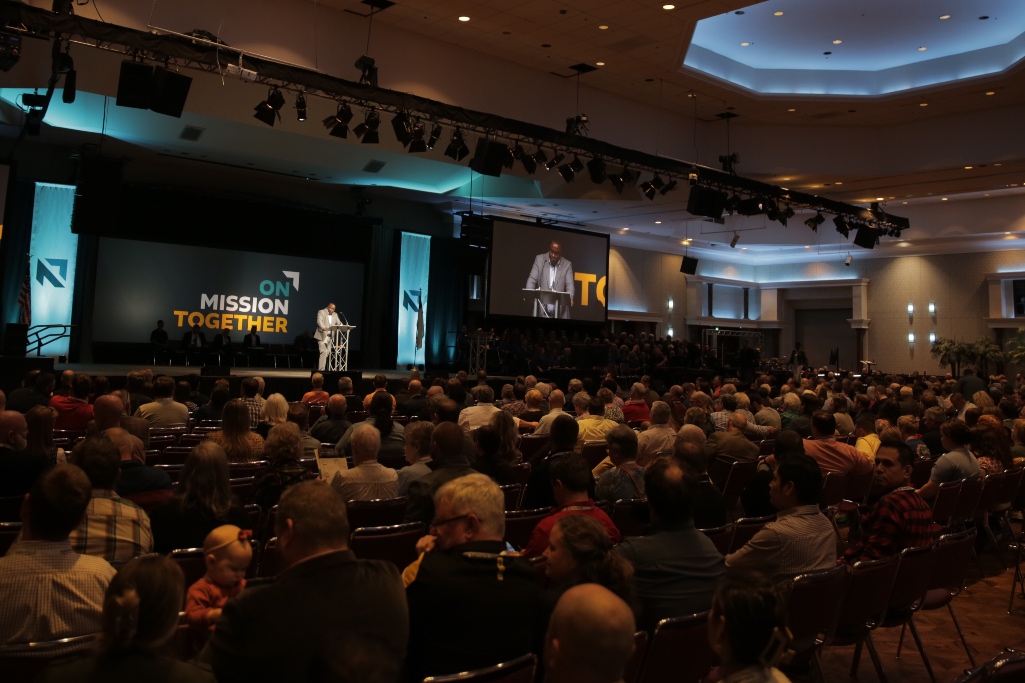
On Thursday, October 26, representatives from Southeastern Seminary, the International Mission Board (IMB), and more than 10 churches in the region gathered for an all-day missions pipeline workshop aimed at facilitating sending partnerships among local churches in the area.
In the cooperative spirit of Southern Baptists, participating churches and entities gathered with a shared desire to see churches in the region partnering toward a common vision of training and sending their congregants to reach the nations. Hosted at Wake Cross Roads Baptist Church in Raleigh, North Carolina, the pipeline workshop featured presentations from local churches with well-established pipelines as well as times for collaboration and discussion among participating churches.
For Rick Fraley, one of the event organizers, workshops like this are a strategic response to the need for more laborers to be sent into the harvest:
“It behooves the local church, Southeastern, and the IMB to work together to create pipelines that are congruent with sending healthy missionaries to reproduce healthy disciples in healthy churches in unreached places (Matt. 9:36-38),” noted Fraley, a longtime missionary to Southeast Asia who now serves as an IMB liaison at Southeastern along with his wife Nancy.
“I see this ‘iron on iron’ sharpening as essential to help our churches to send well,” Fraley continued. “We realize the incredible responsibility that the local church has in preparing and sending as well as ongoing shepherding and receiving back these sent ones. Southeastern and the IMB want to be resources for these churches. We pray that all of us working together will be beneficial in reproducing holy disciples who are ready to go.”
Workshop presentations encouraged churches without existing pipelines to focus on cultivating a sending culture and developing rhythms of intentional training. Sharing strategies and best practices, churches with established pipelines outlined their processes of identifying, developing, deploying, and supporting missionaries within their congregations.
Participants also heard from Alan Garnett, an IMB personnel consultant, about IMB sending pathways and practical steps churches can pursue to be involved in their congregant’s application process with the IMB.
In God’s kindness, five of the top 10 IMB missionary-sending churches are located minutes from Southeastern’s campus in the greater Raleigh-Durham area, making this region a strategic place for missions sending partnerships.
“I truly believe there is something unique going on concerning local church cooperation in the greater Raleigh area,” commented Keelan Cook, director of the Center for Great Commission Studies at Southeastern. “Around the seminary, we are blessed with an embarrassment of riches when it comes to healthy local churches. We are also experiencing a unique moment in the work of his Church to send many to the nations for the sake of the gospel.”
“This workshop brings together the various churches and organizations that have played a significant role in that sending movement,” added Cook, who represented Southeastern at the workshop. “It’s an opportunity for each of us, Southeastern Seminary, our area churches, and the IMB, to further strengthen our cooperation and partnership in serving well those whom we will send.”
An eager partner in this cooperative sending effort, Southeastern is excited to continue equipping church leaders to champion missions, training missionaries to love God and teach his word, and resourcing churches to mobilize their congregants. Expressing Southeastern’s heart to serve local churches and promote Great Commission cooperation, Cook invited churches to utilize the resources and programs of the seminary to fuel their training and sending efforts.
“Our role in this kind of partnership is simple, we serve our churches through convening and equipping,” noted Cook. “As our area churches discover what it means for them to work together to equip their sent-out ones, Southeastern’s missions center plays host and convener for that process. We also serve by being a significant resource in equipping their sent-out ones in preparation to go to the nations. Southeastern has long had a heart for preparing our students to go to those who have not yet heard or accepted the gospel.”
“Often, those being equipped through these sending churches are also students at our seminary,” observed Cook. “By working with our churches, we create a custom equipping process that includes world class theological education, unique shepherding and counsel from their own local church, and the IMB’s expert assessment of those who will go.”
Visit sebts.edu to find out more about how Southeastern equips students to serve the Church and fulfill the Great Commission and check out the thecgcs.org to learn more about mission trips, partnerships, and sending pathways through Southeastern’s Center for Great Commission Studies.


